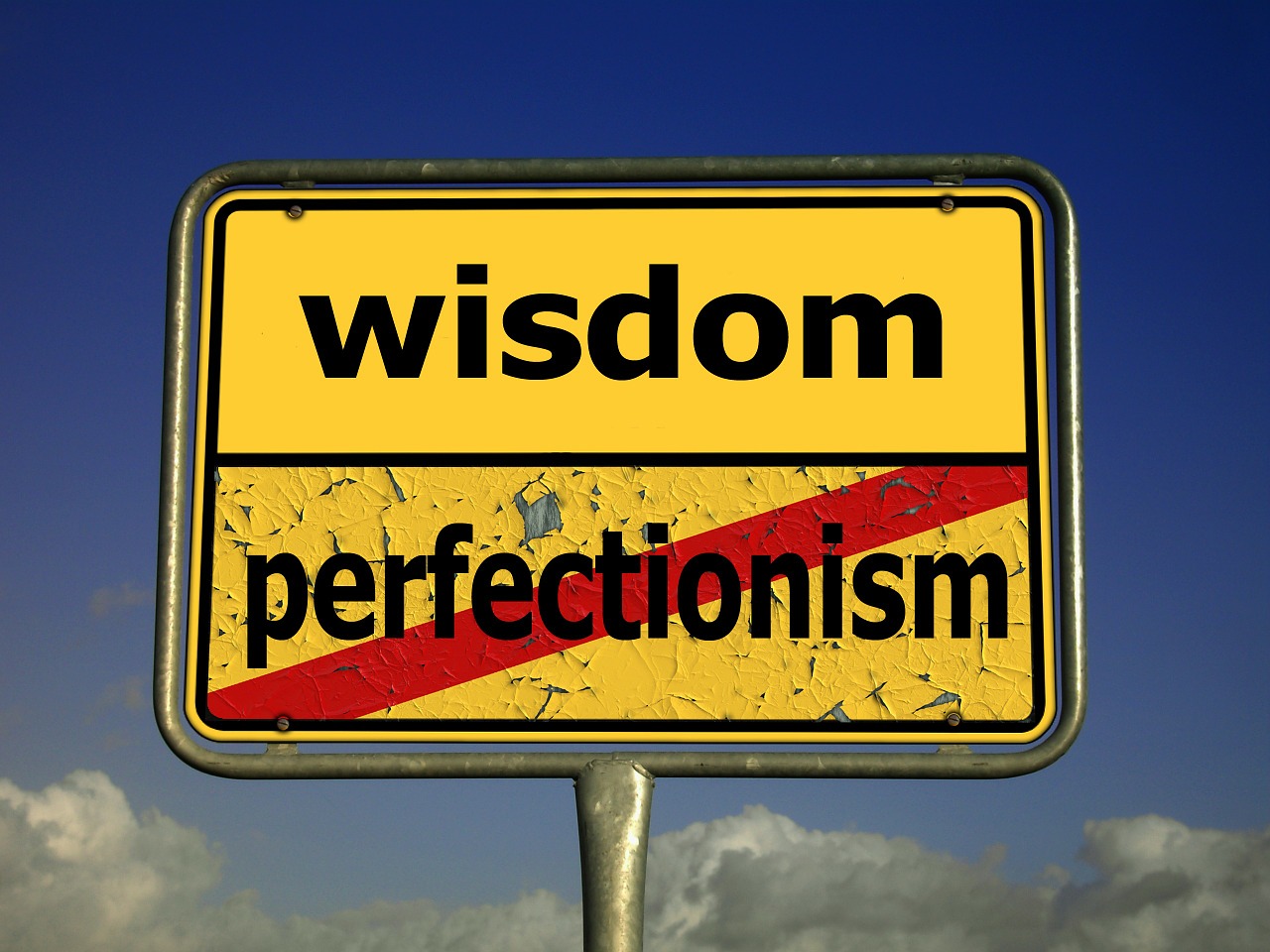
The results are in and the findings are clear: exercise is good for us. Yes, I know, right now, there is a decent chance you thinking to yourself, “Thank you, Dr. Obvious. We’ve known that for a long time.” Go with me for a moment! My job today is not just to peddle the idea that exercise is good for us, something most of us already know, but also to get you thinking about how to motivate yourself to exercise if you’re not already doing so. Today, we tackle the dreaded question of, “Why am I not exercising when I KNOW it’s good for me?” If you already exercise regularly and feel solid in your fitness regimen, good for you, thank you for your patience in reading this far, and I give you my express permission to discontinue reading this blog post…unless, by chance, you can replace “exercise” in the sentence above with some other healthy habit that you’re not doing even though you know it’s good for you, in which case you might keep reading in case any of this advice can be generalized. If you’re already doing everything you know is good for you, kudos! Can you please come write my blog for me next week and share your secrets with the masses?
Wait, where was I? Oh, right. The dreaded, “Why am I not exercising when I KNOW it’s good for me” question. First, I want to take just a paragraph to discuss the science related to the effects of exercise on our brains and bodies. Over the past 20 years, researchers have generated a robust body of evidence showing clearly the benefits of exercise for our mental and physical health, and why and how exercise helps. Offering a detailed, technical explanation of the effects of exercise in our brains and bodies is far beyond the scope of this blog, so let me just give you a list of some of the processes that exercise helps to regulate in our brains and bodies: muscle tension, endorphins, cortisol, hormones, brain-derived neurotrophic factor (BDNF)1, long-term potentiation, insulin-like growth factor, vascular endothelial growth factor, fibroblast growth factor, insulin and glucose, atrial natriuretic peptide, neurotransmitters (including GABA, serotonin, dopamine, norepinephrine), endocannabinoids. Wow! And I shared only SOME of the stuff exercise helps to regulate in our bodies. What’s the take-away from this long, science-y list? Exercise can improve our cardiovascular system, insulin and glucose regulation, mood and emotion regulation, stress tolerance, immune system function, bone strength, motivation, and brain health. Exercise literally changes our brains in constructive, healthy ways. If we think of our brains as a garden, exercise is like a good, organic fertilizer, keeping our brain ready to help us grow, change, adapt, and produce. As a psychologist, I feel it’s especially important to note that exercise can play a significant role in the treatment of depression, anxiety, ADHD, and bipolar disorder.
Does it matter what kind of exercise? Not really, though there are two things to look for in choosing a good workout for yourself2: 1) It needs to get your heart rate up3, and 2) It needs to keep you engaged in the here and now (this means that exercising while you’re watching TV may not give you as much benefit as exercise that keeps your mind focused on the actual exercise). As far as I know, there is no specific type of exercise that offers the perfect workout for every body. That’s good news in the sense that you can play around and find the kind of exercise you really enjoy. So, feel free to power walk, cycle, surf, run, dance, roller skate, cross-train, play soccer, jump rope, or engage in vigorous hula-hooping4.
OK, let’s get back to the title question: “Why am I not exercising when I KNOW it’s good for me?” Finding motivation to change can be tricky! When I recommend exercise to my patients, I often hear something like, “I’ve thought about exercising but I just don’t feel motivated at all, and I don’t have any energy.” Sound familiar? I thought it might. Here’s where we get super sneaky. Get ready. Are you ready? The key to finding the motivation to exercise is to STOP searching for the motivation to exercise. (“But, wait, what?! That makes no sense! This woman is clearly a few cards shy of a full deck”). Yes, you read that correctly. More specifically, the key to finding the motivation to exercise is to STOP searching for the motivation to exercise in that moment. If you wait to exercise until you feel motivated, you may never exercise. A better option is to attach the motivation to exercise to a larger set of your goals and values.

I can use myself as an example here. During the work week, I get up early to exercise, which usually involves riding my bike outside. Quite honestly, if I waited to exercise until I felt motivated, I would NEVER exercise. A little self-disclosure: I am grumpy when I wake up. Not just a little bit grumpy, either. I don’t particularly enjoy the transition to wakefulness, and I certainly don’t wake up feeling excited for the coming day. It’s a hard truth, folks, and it ain’t pretty. So, how do I get myself on my bike? I attach my motivation to larger values, such as: I want to be a good psychologist, family member, and friend, who contributes to the betterment of society; I want to live a long and healthy life; I want to be wise, kind, compassionate, and content; and, by golly, I need to manage my own stress responses and ADHD symptoms. Could exercise be an important tool to help me live out these values? In case you have any doubts about the answer here, please go back and review the second paragraph. I’ll wait here patiently. Back yet? Oh, good. I think we can all agree that the answer is an unequivocal yes. Back to my mornings. I get my grumpy, grumbly self (visualize an overtired, whiny toddler) on my bike, not because I feel particularly motivated in that moment, but because I know that exercise will help me live my life according to my values. I don’t expect myself to be excited to get on my bike, but I do it anyway. Once I’m on my bike, it’s all good with no regrets. Ok, I did regret going out riding earlier this year when it was 25 degrees but you get my point. See, it’s kinda sneaky. Human motivation is super complicated so it’s almost as if we have to outsmart ourselves.
Two other important factors to consider with regard to motivation and exercise.:1) Pick a form of exercise that you find fun or intrinsically rewarding, and 2) Make it as easy and convenient as possible, at least to start. Again, I’ll use myself as an example. I am not a big fan of running (I could never even pretend to look as happy as the woman running in the photo above); it doesn’t seem to suit my body and almost always feels like a struggle. Although it would be inexpensive and convenient, I only run once in a while as a way to cross-train. Even then, when I run, I kinda of run-walk, running for a while and then walking for a bit. It helps make it more tolerable to me. Cycling on the other hand, feels great for my body and I really enjoy seeing the scenery as I’m getting my exercise. This morning I saw four rabbits, a gorgeous snowy egret, and countless dragonflies, mockingbirds, and cardinals. Cycling is convenient for me in that I live a few short blocks from a good riding trail. I make it even more convenient by keeping my bike on a rack by my front door and having my helmet, gloves, and slip-on sneakers nearby. When I am trying to get my grumpy, grumbly self out the door in the morning to ride, I don’t have to work very hard. Once I’m out, I’m rewarded with pretty scenery.
To review, exercise is good for you (again, paragraph 2). To find the motivation to exercise (or engage in another healthy habit that you’re not currently doing), get sneaky with your own mind: stop looking for motivation in the moment and start attaching your motivation to your higher values. Very importantly, find a type of exercise that you find fun and easy to access. For more detailed information about effects of exercise, check out the book Spark: The Revolutionary New Science of Exercise and The Brain by John R. Ratey and Eric Hagerman. It’s an excellent read, with chapters spelling out the effects of exercise on learning, stress, anxiety, depression, ADHD, addiction, hormones, and aging. For more tips about making healthy changes (and making them stick), check out my first ever blog post here.
May you be happy and healthy,
Dr. Jen
Notes:
- Helpful hint: Impress your friends and family by casually informing them that exercise increases brain-derived neurotrophic factor. It will make you sound super smart.
- Consider consulting your physician before you undertake a new exercise routine, especially if you are being treated for any conditions or injuries.
- The American Heart Association offers an easy-to-understand explanation of determining your target heart rate here.
- It is hard to over-exercise but it is certainly possible. You may be more at risk for over exercising if you have ever struggled with a severe eating disorder, addiction, or obsessive-compulsive behavior. Here are some sign you may be over exercising: 1) You are exercising so much that you are neglecting other important parts of your life, 2) You are pushing yourself to exercise despite pain or injury, 3) You continue to exercise against medical advice, 4) Others in your life express concern about how much emphasis you put on exercise, 5) You motivate yourself with harsh and/or rigid internal talk (e.g., “Only losers skip workouts,” “If I don’t work out every day, I will never amount to anything”). If you answer yes to any of these questions, seek appropriate guidance from a qualified mental health professional.



